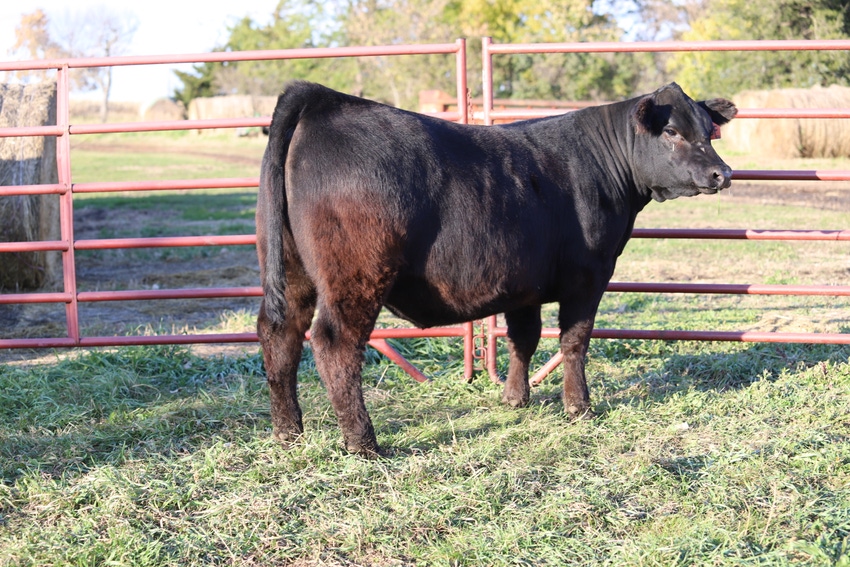Before you go meatless to “save the planet,” let’s think critically about the true environmental impacts of meat in the diet.
December 4, 2019

I recently read an article about a three-star chef named, Dominique Crenn, who recently announced she will no longer be serving meat in her cooking
Her reasoning was to save the planet, although she made clear through her guilt-lined rhetoric, she wasn’t forcing anyone to follow suit.
She told CNN Travel, “Meat is complicated. We have to be thoughtful about the ecosystem that we’re living in and not to destroy it because of the instant gratification and demand of others.” Her meatless menus apply to her numerous San Francisco restaurants including Petit Crenn, Atelier and Boutique Crenn.
“I’m not a pescatarian, I'm not a vegetarian, but I'm also a conscious person," Crenn said, adding that growing up she felt very connected to the soil and has a strong desire to know where her food comes from. "And I know the impact of the way that we fix meat nowadays is not good. It's killing us, it's killing the planet.”
I suspect this menu change will continue to attract many customers in the San Francisco region; however, she says the menu change wasn’t to meet any demands from her guests, but because she feels strongly that this is what will best impact planetary health in a positive way.
She said, "The decision doesn't come from what my guests want. The decision comes from what this planet needs. What decisions as humans we need to make for the planet to be better. I’m trying to make the best decision for my surroundings and the planet and myself. But I'm not forcing anybody to do that. But what am I asking is -- I really want people to think about their actions and their behavior and what they can impact on their own. And it's pretty easy. You know, the little things will go such a long way."
I’m saddened by this rhetoric because it’s a reflection of a growing movement, perpetuated by animal rights activists, environmental extremists, politicians and celebrities and plant-based protein companies.
The sentiment is understandable. I think we can all agree that we want to take care of our planet and utilize our natural resources in a responsible, regenerative way. However, the core arguments of these plant-based discussions aren’t grounded in facts, but in propaganda.
Without question, debunking the cattle and climate change link has been the number-one topic I’ve addressed on this blog and in my speeches across the country in 2019.
To be honest, it’s rather exhausting repeating the same truths only to have them lost in the void due to the sensational headlines and eye-grabbing sound bites about “farting cows.”
Yet, there is some positivity in this negative hype. Here is a roundup of recent articles in the mainstream media that tackle this topic well:
1. “Veganism won’t save the world from environmental ruin, researchers warn” by Hannah Sparks for the New York Post
Sparks writes, Here’s a red-hot take on red meat: Going vegan won’t save the environment. Livestock farmers are being unfairly ‘demonized’ by vegans and environmental advocates, experts from the University of Edinburgh and Scotland’s Rural College told their peers at a panel in London. The shocking stance comes despite the urging of hoards of climate scientists who say eating a plant-based diet is one of the best ways to curtail our current environmental crisis.”
2. “Red meat used as scapegoat in carbon emissions debate” by the FarmingUK team
According to FarmingUK, “Red meat has been used as a scapegoat in discussions around carbon emissions as livestock farming contributes just 4% of the UK’s Co2 emissions, industry groups say.
“The UK's red meat levy bodies, AHDB, Quality Meat Scotland and Hybu Cig Cymru, have released an open letter following the BBC's ‘Meat: A Threat to our Planet” program.
“The backlash against the documentary, which aired on Nov. 25 is still continuing as farm groups set the record straight following what they think was an unbalanced and inaccurate view of the industry.”
3. “Chew on this: Farmers are using food waste to make electricity” by Allison Aubrey for NPR
Aubrey writes, “Dairy farmers in Massachusetts are using food waste to create electricity. They feed waste into anaerobic digesters, built and operated by Vanguard Renewables, which capture the methane emissions and make renewable energy.”
4. “Our brains need animal fat to fully function, psychiatrist says” featured on Return to Now
This isn’t a climate change blog, but I believe there are ramifications to plant-based diets that could be remedied with animal fats and proteins. This article explains what I mean.
Here is an excerpt: “Our brains are two-thirds fat. Of that, 20% is supposed to be comprised of an omega-3 fatty acid called DHA. There are no plant sources of DHA, only animal sources. There is a plant source of a precursor to DHA (docosahexanoic acid) called ALA (alpha-linoleic acid), but the body is only capable of converting less than 10% of it, at most, into the DHA. Some studies find the conversion rate to be zero. What happens when you don’t get enough DHA? Bad things.”
There's still much work to do in this arena, but it's also okay to celebrate the small victories along the way. Perhaps the antidote to these plant-based menus is to open up a carnivore restaurant and watch the crowds flock to eat! In the meantime, please help spread the good word by sharing blogs like this one on social media. Thank you for your help!
The opinions of Amanda Radke are not necessarily those of beefmagazine.com or Farm Progress.
About the Author(s)
You May Also Like



.png?width=300&auto=webp&quality=80&disable=upscale)
.png?width=300&auto=webp&quality=80&disable=upscale)
